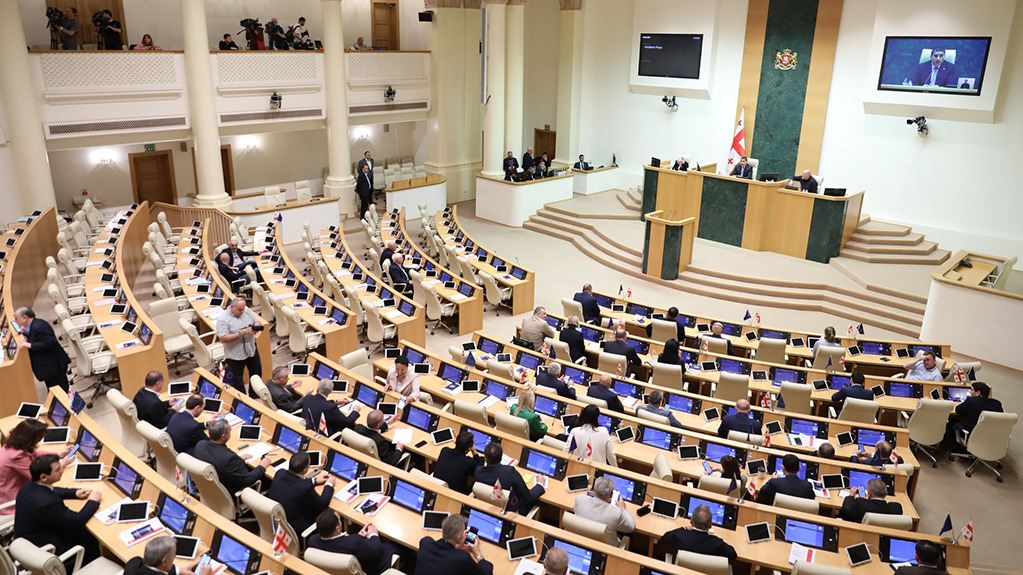The Venice Commission recommends that the Parliament of Georgia fully review and refrain from proceeding with the legislative changes that restrict the rights of LGBT individuals and enforce censorship.
News
We are discussing the draft constitutional law On Family Values and Protection of Minors, initiated by MPs from the ruling Georgian Dream, including the Speaker of the Parliament, Shalva Papuashvili. According to the opinion of the Venice Commission, merely proposing its adoption poses the risk of fostering a hostile and stigmatizing environment toward LGBTI individuals in Georgia.
The commission's conclusion states that the project contains broad and imprecise wording. For instance, in Article 6, the term "assembly" encompasses all forms of gatherings, whether conducted in public, semi-public spaces (such as shopping malls or railway stations), or in private premises. The size of the gathering is also unspecified, ranging potentially from meetings of two people to several thousand. Regarding "popularization," neither the draft constitutional law nor its explanatory note provides a precise definition of this term.
“The meaning of this word could possibly be equated to the term “promote”, already used by similar (draft) legislation on the prohibition of the so-called “propaganda of homosexuality” in other countries (Russia, Hungary, Ukraine, Republic of Moldova).51 It is not clear whether this term has to be interpreted restrictively or whether it covers any information or opinion in favor of same-sex family or intimate relationships,” the conclusion reads.
The stated legitimate purpose of the bill is to protect family values and minors. According to the Venice Commission, however, the draft law and its explanatory note do not clarify how the prohibitions in question will contribute to achieving this objective.
The Venice Commission believes that adopting the draft constitutional law would create a risk of reinforcing stigma and prejudice, fostering homophobia, which is inconsistent with the principles of equality, pluralism, and tolerance that characterize a democratic society.
The Venice Commission refers to the assessment by the European Court of Human Rights, which states that there is no scientific evidence or sociological data indicating that merely mentioning homosexuality or openly discussing the social status of sexual minorities negatively affects children or "vulnerable adults". On the contrary, it argues that only through fair and public debate can society address such complex issues effectively.
According to the Venice Commission, the European Court of Human Rights determined that laws sanctioning, censoring, or outright outlawing discussion of sexual orientation and gender identity, purportedly to protect children, not only impact freedom of expression by inevitably stifling it but also contribute to stigmatizing LGBT individuals regardless of their age. These laws also restrict children's rights to access comprehensive and age/developmentally appropriate information about sexuality, sexual, and reproductive health.
The Venice Commission recommends that before making changes to the Constitution, a comprehensive analysis of their potential impact should be conducted, involving all segments of society, particularly representatives of sexual and gender minorities, as well as experts and professionals from relevant fields such as law, health, education, and social security.
“Such analysis should be made public and be carried out in a period of time that is propitious for a genuine and unbiased consultation, allowing for an honest and impartial assessment of the issues at stake,” reads the Venice Commission's conclusion.
If the draft constitutional law is retained, the recommendations of the Venice Commission are as follows:
- Modify Article 1 to allow legal recognition of same-sex couples.
- Remove the word "genetically" from Article 1.
- Replace the term "heterosexual" in Article 2 with "single" or "natural person".
- Remove Article 3 entirely.
- Delete the first sentence of Article 4 ("according to genetic data") and establish a detailed and precise law ensuring fast, transparent, and accessible procedures for changing the registered gender marker of transgender people.
- Remove Article 5 or revise it to align with non-discrimination standards.
- Delete Articles 6, 1.7, and 1.8, and address incest through separate regulations under criminal law.
In the Parliament of the 10th convocation, Georgian Dream does not have the 113 votes required to amend the constitution. Consequently, the ruling party has submitted a package of draft laws on Family Values and the Protection of Minors and intends to amend various laws. Currently, the Parliament is reviewing the legislative package in its first reading.















